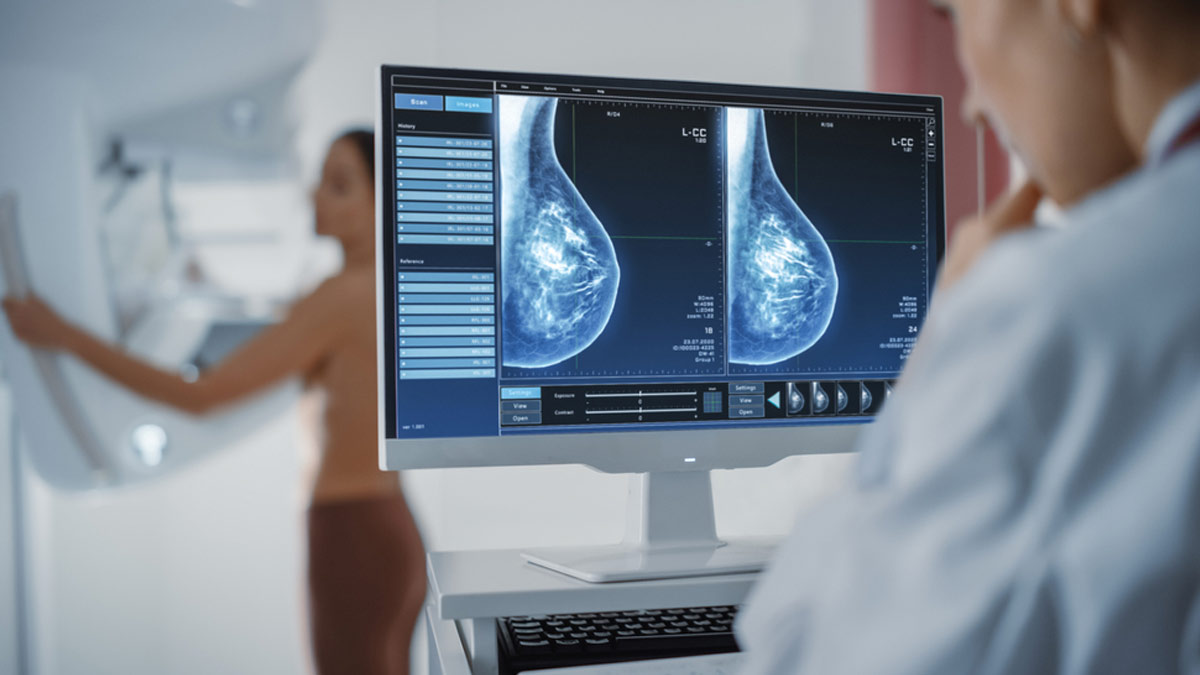
Breast cancer occurs when cells in the breast start to grow uncontrollably, forming a tumour. It is the most common type of cancer in women, accounting for 20.3 lakh new cases and 6.7 lakh deaths in 2022 alone, according to the World Health Organization (WHO).
Table of Content:-
It is important to note that the risk of female breast cancer increases with age, with most cases being diagnosed in women who are 50 years old or older. In fact, about 80% of women diagnosed with breast cancer each year are 45 or older, and about 43% are 65 or older.
To mitigate the risk, doctors recommend conducting regular breast self-examinations and getting various tests to detect the condition early. However, many women remain doubtful as to when, why, and how often they should get their tests, including mammograms. Speaking with the OnlyMyHealth team, Dr Sushruta Mysore Shankar, Consultant - Breast Surgery and Surgical Oncology, SPARSH Hospital, Bengaluru, helps answer all the questions.
Also Read: Rare, But Men Can Also Develop Breast Cancer: Expert Shares Who Is At Risk And Warning Signs
Importance Of Early Breast Cancer Diagnosis

Breast cancer can cause various symptoms, including a new lump in the breast or underarm, breast swelling, dimpling of the breast skin, inverted nipples, and more.
However, not all women show signs of breast cancer, and some remain asymptomatic for a long period of time. This can lead to delayed diagnosis and treatment, which can cause further complications. In certain cases, the cancer may spread to other parts of the body, also known as metastatic or advanced breast cancer. According to Cancer.Net, advanced breast cancer causes the vast majority of deaths from the disease. This is why early diagnosis plays a significant role.
It is only through regular screenings that doctors are able to catch the tumour on time and provide effective care and treatment.
Dr Shankar says, "Early diagnosis of breast cancer is crucial as it allows for timely intervention, leading to better treatment outcomes and increased chances of survival. Detecting breast cancer in its early stages enables more treatment options, allowing breast conservation and reducing the risk of cancer spreading to other parts of the body."
How Do Mammograms Work?

A mammogram is a special X-ray that checks for abnormalities in the breast tissue. During the procedure, a doctor will position your breast on a platform and compress it between two plates. These plates will flatten the breast, spreading the tissue for a clearer image. A machine then emits a low dose of X-rays that pass through your breast and are captured by a detector on the other side. You are likely to feel some pressure during the procedure.
These X-rays are converted into digital images that allow radiologists to examine your breast tissue for signs of cancer or other changes.
When Should Women Start Getting Annual Mammograms?

When it comes to detecting breast cancer, women are advised to get regular breast screenings and conduct frequent breast self-examinations.
"For women at average risk, guidelines generally recommend starting mammograms at age 40 and continuing annually thereafter," recommends Dr Shankar.
However, individual risk factors and medical history may influence the timing and frequency of screenings, she adds.
Other Tests That Can Help Detect Breast Cancer
In addition to mammograms, other methods to detect breast cancer include clinical breast exams performed by healthcare providers and breast self-exams conducted by individuals at home.
Imaging techniques, such as ultrasound and magnetic resonance imaging (MRI), may also be used in certain cases, particularly for women with dense breast tissue or higher risk factors, says Dr Shankar, adding that regular screenings and awareness of any changes in breast tissue are essential for early detection and effective management of breast cancer.
Also watch this video
Read Next
Your Car Is Exposing You To Cancer-Causing Chemicals, Reveals Study: Here's How You Can Stay Safe
How we keep this article up to date:
We work with experts and keep a close eye on the latest in health and wellness. Whenever there is a new research or helpful information, we update our articles with accurate and useful advice.
Current Version